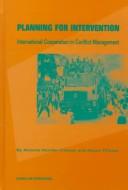| Listing 1 - 10 of 35 | << page >> |
Sort by
|
Book
ISBN: 2709916673 2709917777 Year: 2009 Publisher: IRD Éditions
Abstract | Keywords | Export | Availability | Bookmark
 Loading...
Loading...Choose an application
- Reference Manager
- EndNote
- RefWorks (Direct export to RefWorks)
Chikungunya, dengue, fièvre catarrhale ovine… La forte recrudescence au cours de ces dernières années de maladies transmises par des insectes vecteurs constitue aujourd’hui une préoccupation majeure de santé publique, dans ses composantes humaine et animale. La « lutte antivectorielle » a pour objectifs de minimiser les risques d’endémisation ou d’épidémisation, de diminuer la transmission d’agents pathogènes par des vecteurs et de gérer les épidémies dans un cadre stratégique formalisé. Cinq ministères français ont demandé en 2008 à l’Institut de recherche pour le développement (IRD) de produire un état des lieux complet et une analyse pluridisciplinaire des dispositifs de lutte antivectorielle en métropole et dans les régions ultra-marines. Le cadre de la gouvernance et la répartition des compétences, les conditions générales de mise en œuvre de la lutte antivectorielle, les pratiques et modalités d’évaluation de la lutte, les outils et leviers d’anticipation ont ainsi été examinés par un collège d’experts qui en restitue ici le bilan détaillé. Au-delà, cette expertise collégiale met en lumière les évolutions indispensables que doit connaître ce domaine sensible et livre des recommandations en vue d’une refondation des politiques de lutte. Les défis à relever et les stratégies à concevoir pour le contrôle des risques sont d’autant plus complexes que les changements globaux (climatiques, environnementaux, sociétaux) influencent considérablement les systèmes vectoriels. Chikungunya, dengue, bluetongue disease and others The strong resurgence of insect-vector transmitted diseases over recent years has become a major public health concern, in both human and veterinary spheres. Vector control has the objective of bringing down to a minimum the risks of endemization or epidemization, reducing pathogen transmission by vectors and managing epidemics in a clearly formulated strategic framework. In 2008 five French ministries commissioned the Institut de recherche pour…
Public Health --- Health & Biological Sciences --- Transmission of Disease --- vecteur --- méthode de lutte (santé) --- Guyane française --- Réunion --- expertise --- toxicité --- coopération internationale --- Guadeloupe --- coopération régionale --- Mayotte --- Martinique --- maladie --- France --- Corse --- lutte (santé)

ISBN: 0791443078 0791443086 9780791443088 9780791443071 Year: 1999 Volume: *6 Publisher: Albany, NY State University of New York Press
Abstract | Keywords | Export | Availability | Bookmark
 Loading...
Loading...Choose an application
- Reference Manager
- EndNote
- RefWorks (Direct export to RefWorks)
International organization --- International cooperation --- International relations --- Philosophy --- Aide internationale --- Aide à l'étranger --- Collaboration internationale --- Cooperation [international ] --- Coopération bilatérale --- Coopération internationale --- Coopération interrégionale --- Coopération multilatérale --- Coopération régionale --- Global governance --- Institutions [international ] --- Institutions internationales --- Interdependence of nations --- International institutions --- Internationale samenwerking --- World government --- World order --- International relations - Philosophy

ISBN: 033365112X 0333651111 9780333651124 9780333651117 Year: 2000 Publisher: London Macmillan
Abstract | Keywords | Export | Availability | Bookmark
 Loading...
Loading...Choose an application
- Reference Manager
- EndNote
- RefWorks (Direct export to RefWorks)
Sociology --- Aide internationale --- Aide à l'étranger --- Collaboration internationale --- Cooperation [international ] --- Coopération bilatérale --- Coopération internationale --- Coopération interrégionale --- Coopération multilatérale --- Coopération régionale --- Global governance --- Institutions [international ] --- Institutions internationales --- Interdependence of nations --- International cooperation --- International institutions --- Internationale samenwerking --- Sociologie --- World government --- World order --- Sociology. --- #SBIB:316.21H00 --- 316 <035> --- Theoretische sociologie: inleidingen op de huidige toestand --- Sociologie --(algemeen)--Grote handboeken. Compendia --- 316 <035> Sociologie --(algemeen)--Grote handboeken. Compendia --- International Cooperation

ISBN: 0719039878 071903986X Year: 1997 Volume: *2 Publisher: Manchester New York Manchester University Press
Abstract | Keywords | Export | Availability | Bookmark
 Loading...
Loading...Choose an application
- Reference Manager
- EndNote
- RefWorks (Direct export to RefWorks)
International economic relations --- Polemology --- Europe --- Aide internationale --- Aide à l'étranger --- Collaboration internationale --- Cooperation [international ] --- Coopération bilatérale --- Coopération internationale --- Coopération interrégionale --- Coopération multilatérale --- Coopération régionale --- Global governance --- Institutions [international ] --- Institutions internationales --- Interdependence of nations --- International cooperation --- International institutions --- Internationale samenwerking --- World government --- World order --- Post-communism --- Economic security --- National security --- Postcommunisme --- Sécurité économique --- Sécurité nationale --- Foreign economic relations --- Relations économiques extérieures --- Decommunization --- International cooperation. --- Sécurité économique --- Coopération internationale --- Sécurité nationale --- Relations économiques extérieures
Book
ISBN: 9211042100 Year: 1987 Volume: vol 17 Publisher: New York, United Nations
Abstract | Keywords | Export | Availability | Bookmark
 Loading...
Loading...Choose an application
- Reference Manager
- EndNote
- RefWorks (Direct export to RefWorks)
Aide internationale --- Aide à l'étranger --- Collaboration internationale --- Cooperation [international ] --- Coopération bilatérale --- Coopération internationale --- Coopération interrégionale --- Coopération multilatérale --- Coopération régionale --- Cours d'eau internationaux --- Gestion du bassin hydrographique --- Global governance --- Institutions [international ] --- Institutions internationales --- Interdependence of nations --- International cooperation --- International institutions --- International rivers --- Internationale samenwerking --- Internationale waterwegen --- Stroomgebieden--Beheer --- Watershed management --- World government --- World order --- Water resources development --- -International rivers --- Energy development --- Natural resources --- Water-supply --- Rivers, Right of navigation of --- Rivers --- Law and legislation

ISBN: 0847691551 9780847691555 Year: 1999 Publisher: Lanham, Md. Oxford Rowman & Littlefield Publishers
Abstract | Keywords | Export | Availability | Bookmark
 Loading...
Loading...Choose an application
- Reference Manager
- EndNote
- RefWorks (Direct export to RefWorks)
Aide internationale --- Aide à l'étranger --- Collaboration internationale --- Cooperation [international ] --- Coopération bilatérale --- Coopération internationale --- Coopération interrégionale --- Coopération multilatérale --- Coopération régionale --- Droit international économique --- Droit économique (Droit international) --- Droit économique international --- Economic policy [Foreign ] --- Economic relations [Foreign ] --- Economics [International ] --- Economische betrekkingen [Internationale ] --- Foreign economic policy --- Global governance --- Institutions [international ] --- Institutions internationales --- Interdependence of nations --- International cooperation --- International economic policy --- International economic relations --- International economics --- International institutions --- Internationale economische betrekkingen --- Internationale samenwerking --- New international economic order --- Relations économiques internationales --- World government --- World order --- International Cooperation

ISBN: 9041114262 9004478132 9789041114266 9789004478138 Year: 2000 Publisher: Leiden; Boston : Brill | Nijhoff
Abstract | Keywords | Export | Availability | Bookmark
 Loading...
Loading...Choose an application
- Reference Manager
- EndNote
- RefWorks (Direct export to RefWorks)
In the late 20th century, it has become widely accepted that States need to cooperate in order to pursue effectively their interests within the increasingly interdependent world order. At the same time, the principle of sovereignty is still often invoked as a claim for independence and a justification for non-cooperation. This book goes beyond that traditional understanding to develop a new theory which holds that cooperation between States is not an independent principle supplementing State sovereignty or even a counterweight to State sovereignty. Rather, cooperation should be conceived an element of the very notion of sovereignty itself. Sovereignty is not a negative principle meaning merely State independence and freedom, but it also inherently includes a positive element which stresses a State's innate membership in the international community and its authority, its responsibility, its duty to participate actively in that community. In short, sovereignty not only means independence, it also means a responsibility to cooperate. The first part of the book traces the history of the principle of sovereignty from the theories of Grotius and Francisco de Vitoria to the modern understanding of the principle in the light of the United Nations system. The second part of the book poses challenges to the traditional concept of sovereignty in the light of the 20th century interdependence, and the third part goes on to formulate a new theory which takes into account the principles of customary law and treaty law. The conclusions drawn on by the author are refreshing, but may also be controversial, and this book will most definitely contribute to the discussion and development of the principle of sovereignty in international law.
Aide internationale --- Aide à l'étranger --- Collaboration internationale --- Cooperation [international ] --- Coopération bilatérale --- Coopération internationale --- Coopération interrégionale --- Coopération multilatérale --- Coopération régionale --- Global governance --- Institutions [international ] --- Institutions internationales --- Interdependence of nations --- International cooperation --- International institutions --- Internationale samenwerking --- Soevereiniteit --- Souveraineté --- Sovereignty --- World government --- World order --- Sovereignty. --- International cooperation. --- State sovereignty (International relations) --- International law --- Political science --- Common heritage of mankind (International law) --- International relations --- Self-determination, National --- Cooperation, International --- Institutions, International --- Cooperation --- International organization --- Law and legislation

ISBN: 0262611449 Year: 1999 Publisher: Cambridge, Mass. London MIT Press
Abstract | Keywords | Export | Availability | Bookmark
 Loading...
Loading...Choose an application
- Reference Manager
- EndNote
- RefWorks (Direct export to RefWorks)
International relations. Foreign policy --- Aide internationale --- Aide à l'étranger --- Coexistence --- Collaboration internationale --- Colonialism --- Cooperation [international ] --- Coopération bilatérale --- Coopération internationale --- Coopération interrégionale --- Coopération multilatérale --- Coopération régionale --- Coëxistence pacifique --- Foreign affairs --- Foreign policy --- Global governance --- Histoire politique --- Institutions [international ] --- Institutions internationales --- Interdependence of nations --- International cooperation --- International institutions --- International politics --- International relations --- Internationale betrekkingen --- Internationale politiek --- Internationale samenwerking --- Ordre mondial --- Peaceful coexistence --- Political history --- Politics [International ] --- Politics [World ] --- Politiek [Internationale ] --- Politieke geschiedenis --- Politique internationale --- Relations internationales --- Vreedzame coëxistentie --- Wereldorde --- World government --- World order --- World politics

ISBN: 904110643X Year: 1999 Publisher: The Hague London Boston Kluwer Law International
Abstract | Keywords | Export | Availability | Bookmark
 Loading...
Loading...Choose an application
- Reference Manager
- EndNote
- RefWorks (Direct export to RefWorks)
International movements --- Peaceful settlement of international disputes --- Internal politics --- Aide internationale --- Aide à l'étranger --- Burgeroorlog --- Civil war --- Collaboration internationale --- Cooperation [international ] --- Coopération bilatérale --- Coopération internationale --- Coopération interrégionale --- Coopération multilatérale --- Coopération régionale --- Global governance --- Guerre civile --- Institutions [international ] --- Institutions internationales --- Interdependence of nations --- International cooperation --- International institutions --- Internationale samenwerking --- Interventie (Internationaal recht) --- Interventie [Militaire ] --- Intervention (Droit international) --- Intervention (International law) --- Intervention [Military ] --- Intervention militaire --- Militaire interventie --- Military intervention --- Rebellions --- World government --- World order --- Cooperation, International --- Institutions, International --- Cooperation --- International relations --- International organization --- Civil wars --- Intra-state war --- Government, Resistance to --- International law --- Revolutions --- War --- Diplomacy --- Neutrality

ISBN: 187837933X 1878379348 Year: 1994 Publisher: Washington United States Institute of Peace Press
Abstract | Keywords | Export | Availability | Bookmark
 Loading...
Loading...Choose an application
- Reference Manager
- EndNote
- RefWorks (Direct export to RefWorks)
International relations. Foreign policy --- Aide internationale --- Aide à l'étranger --- Collaboration internationale --- Colonialism --- Cooperation [international ] --- Coopération bilatérale --- Coopération internationale --- Coopération interrégionale --- Coopération multilatérale --- Coopération régionale --- Développement économique --- Economic development --- Economic growth --- Economische ontwikkeling --- Global governance --- Histoire politique --- Institutions [international ] --- Institutions internationales --- Interdependence of nations --- International cooperation --- International institutions --- International politics --- Internationale politiek --- Internationale samenwerking --- Political history --- Politics [International ] --- Politics [World ] --- Politiek [Internationale ] --- Politieke geschiedenis --- Politique internationale --- World government --- World order --- World politics --- International cooperation. --- World politics. --- Economic development. --- Politique mondiale --- Coopération internationale --- Développement économique
| Listing 1 - 10 of 35 | << page >> |
Sort by
|

 Search
Search Feedback
Feedback About
About Help
Help News
News